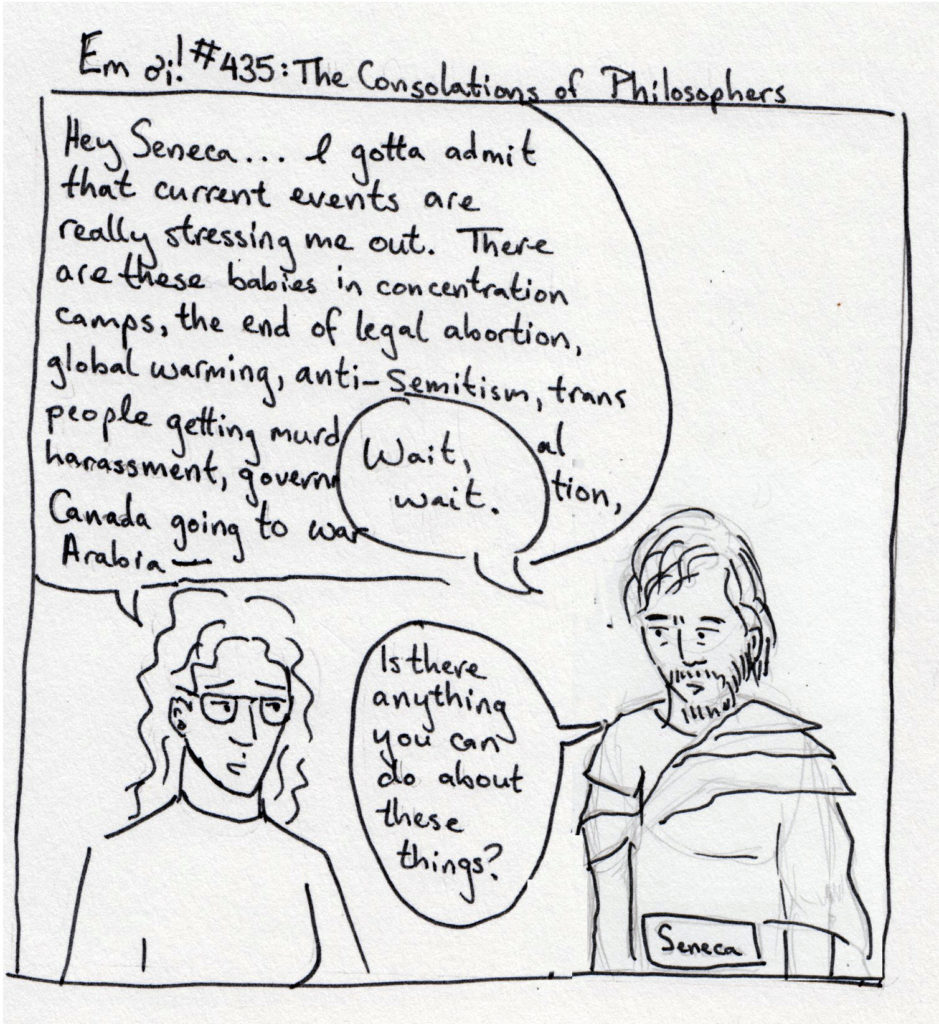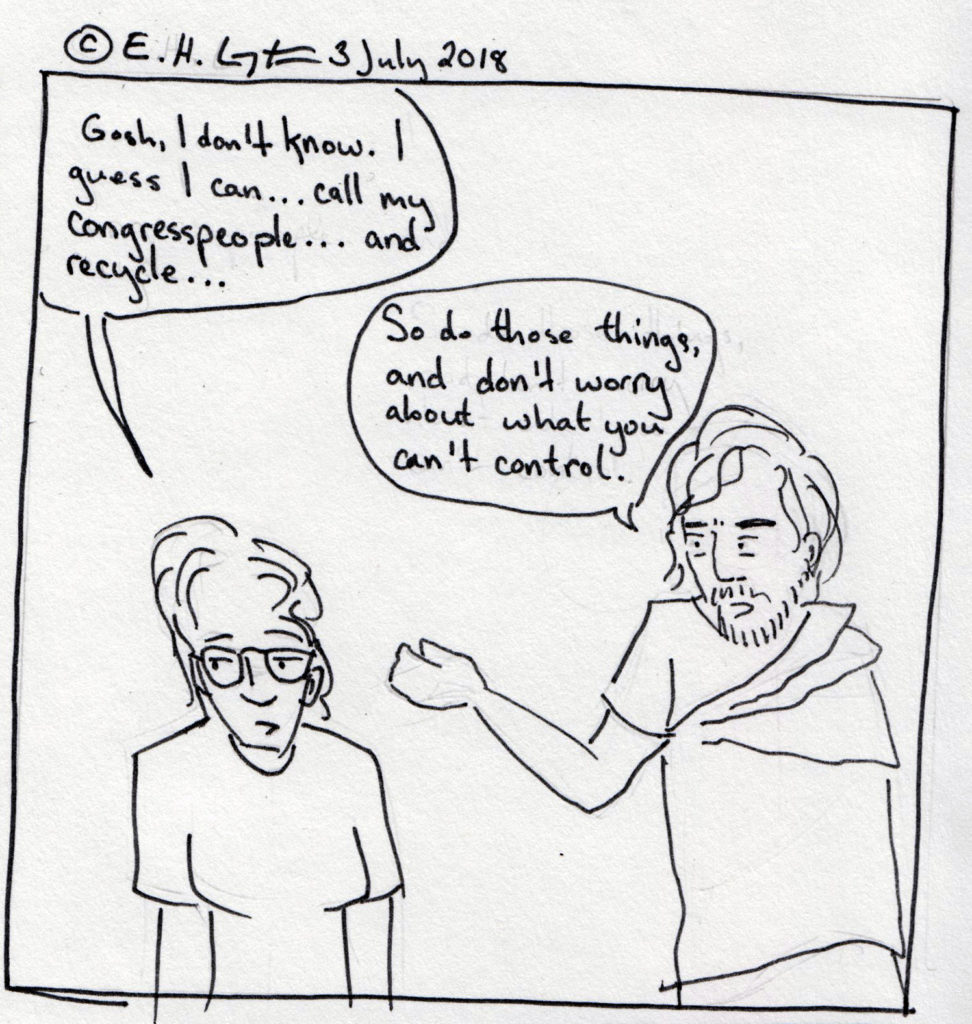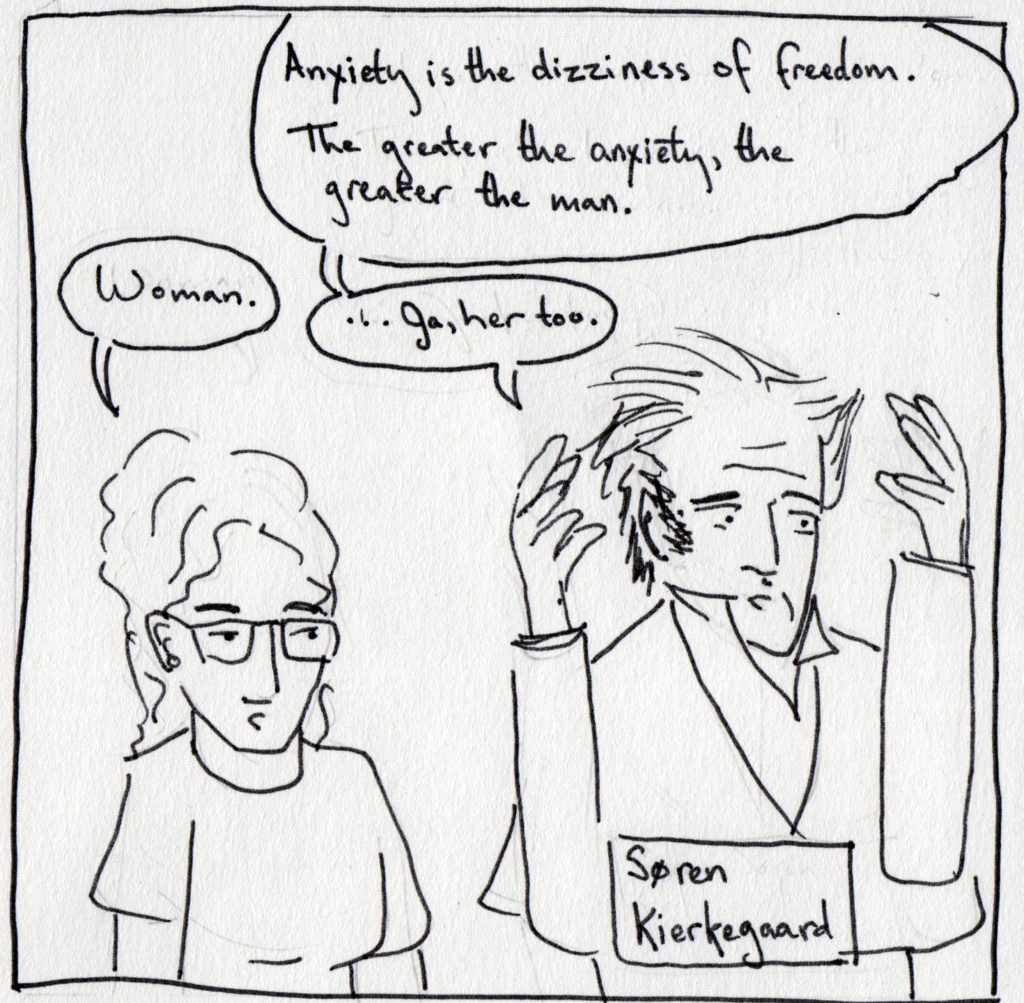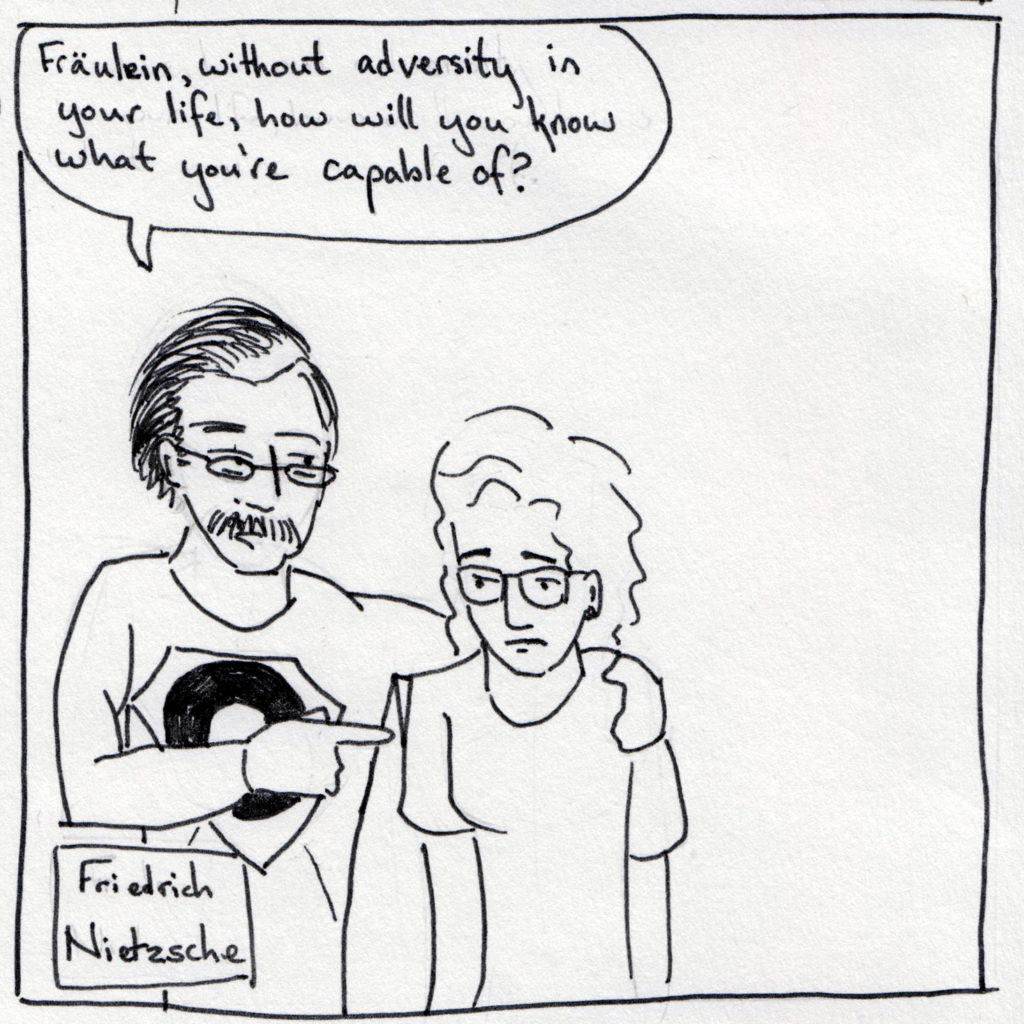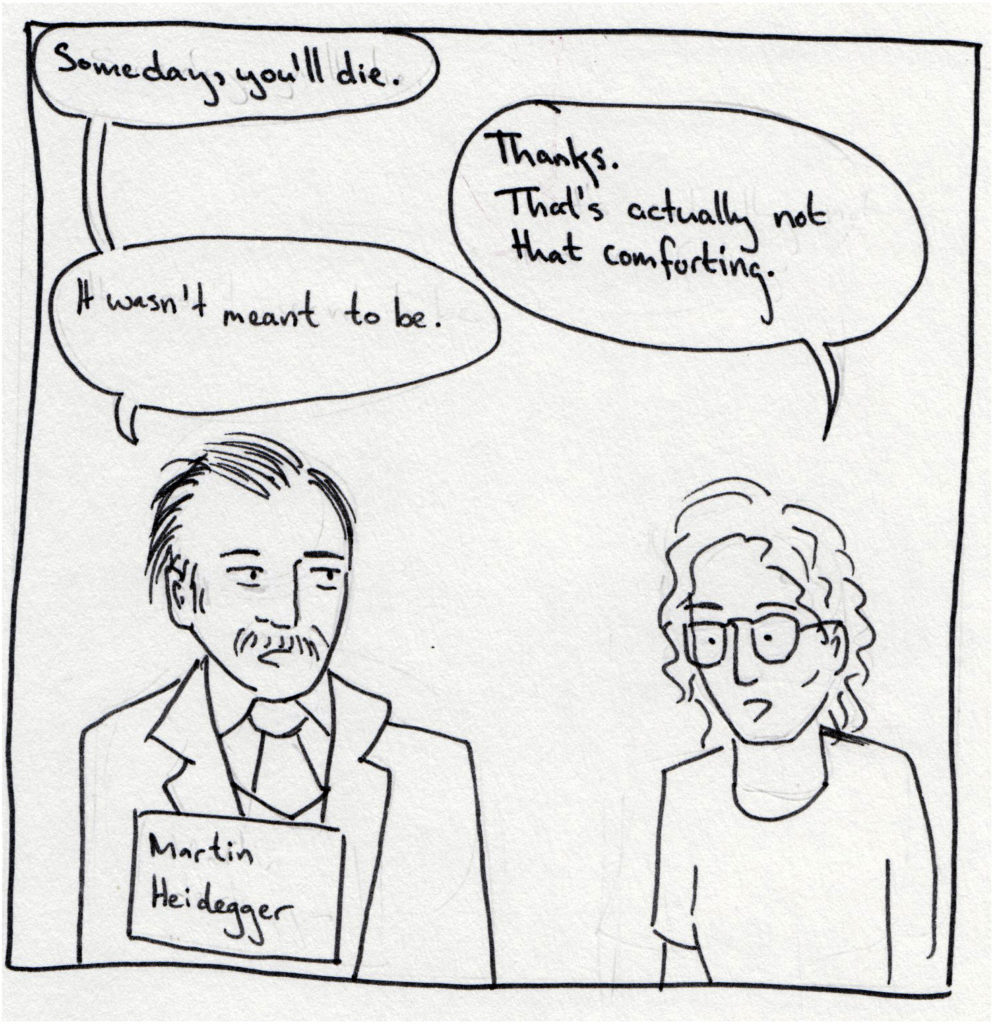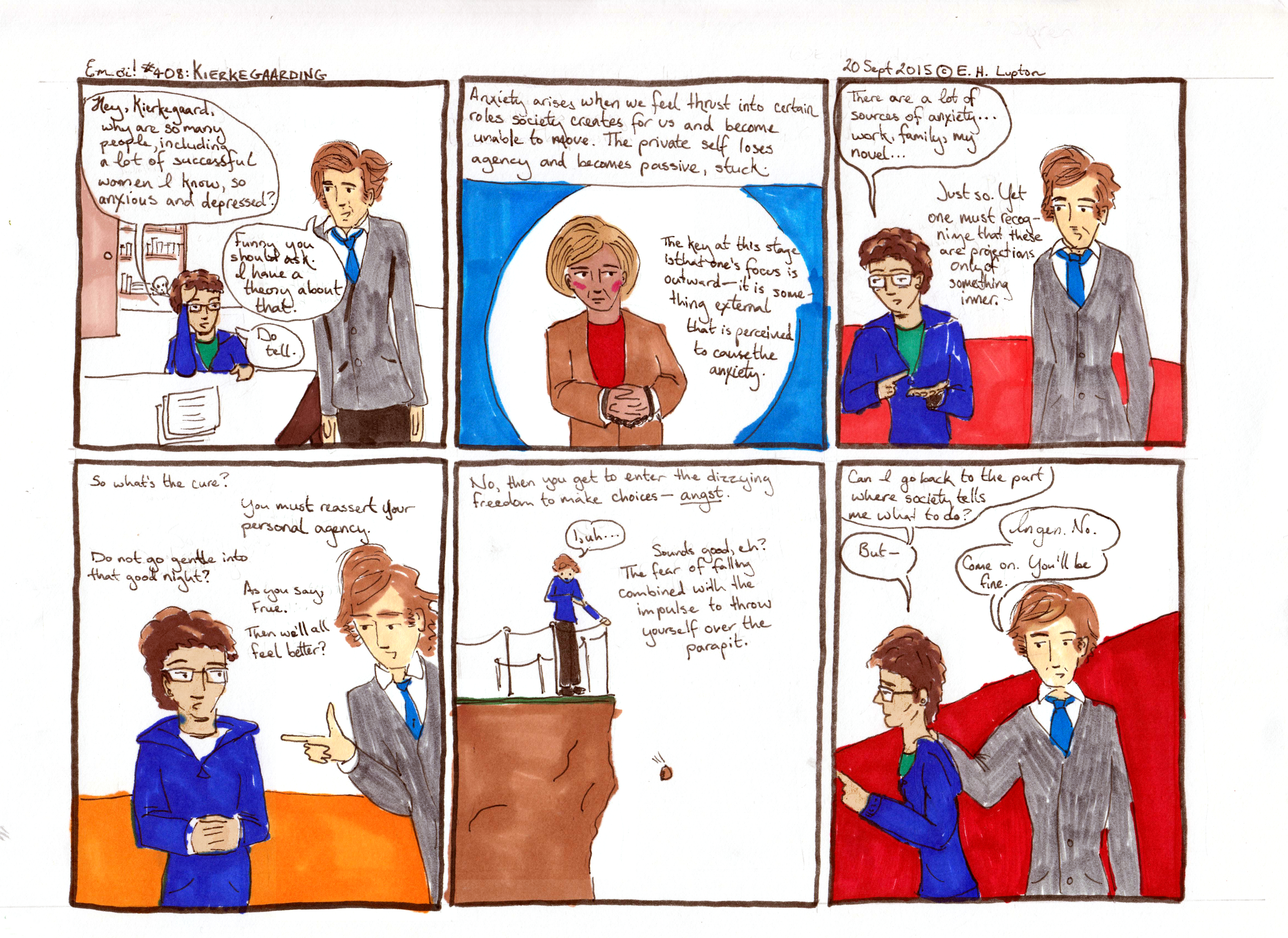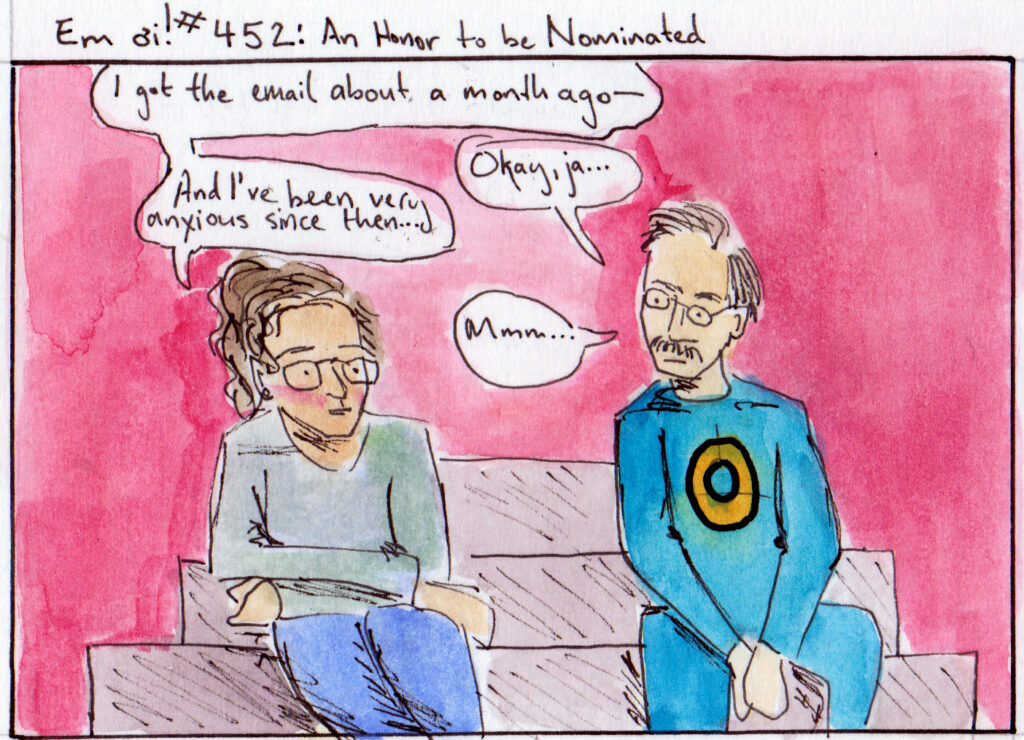
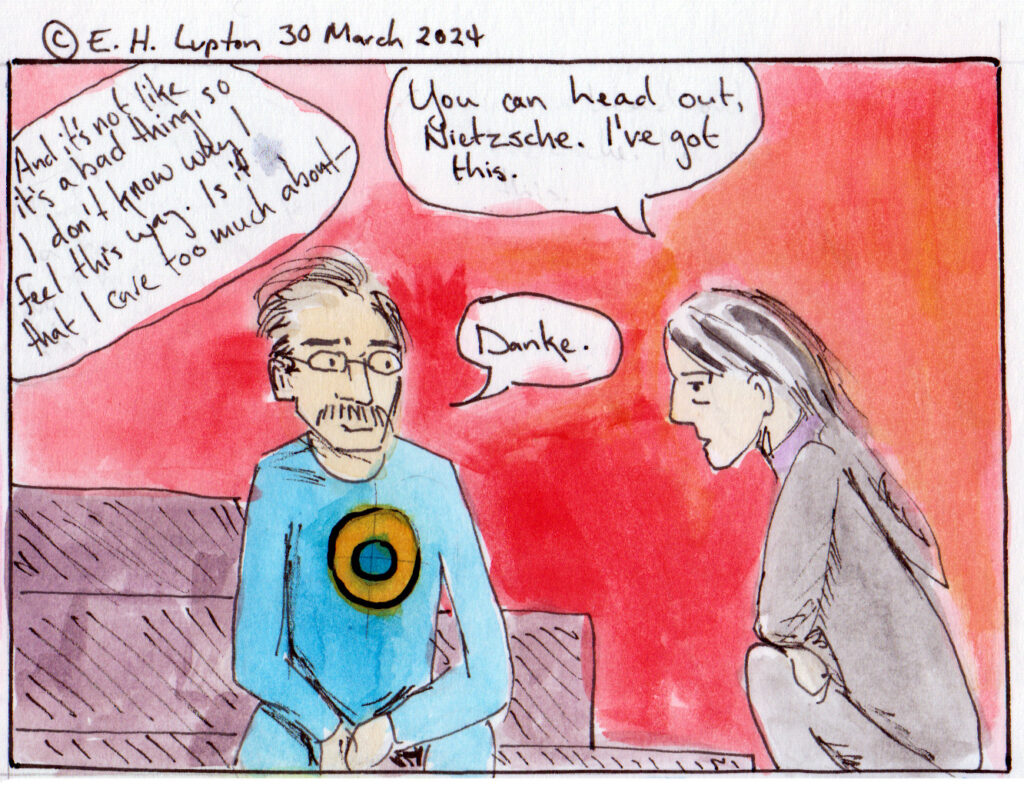
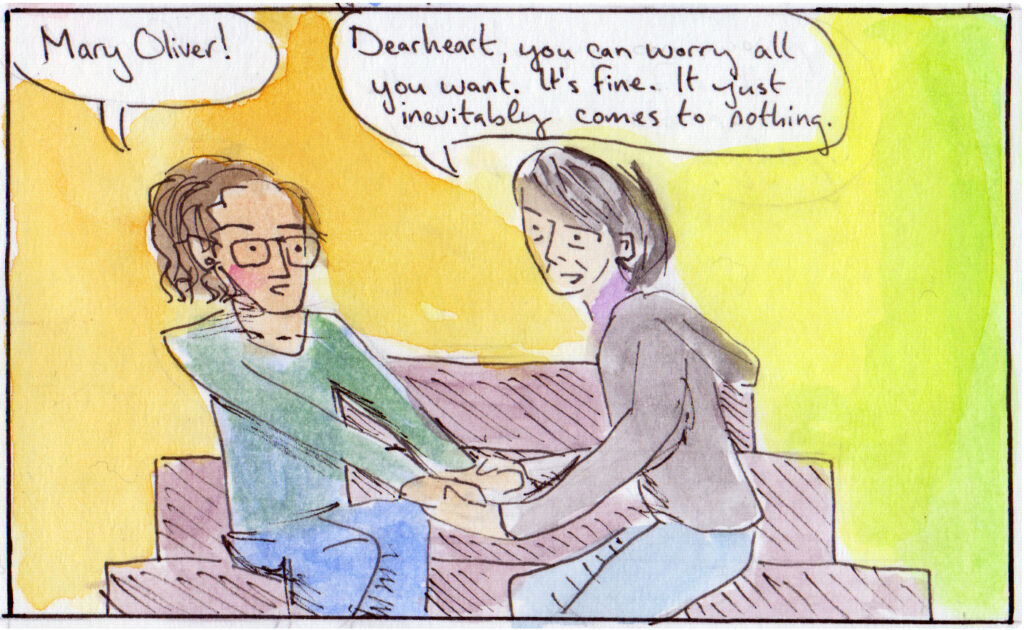
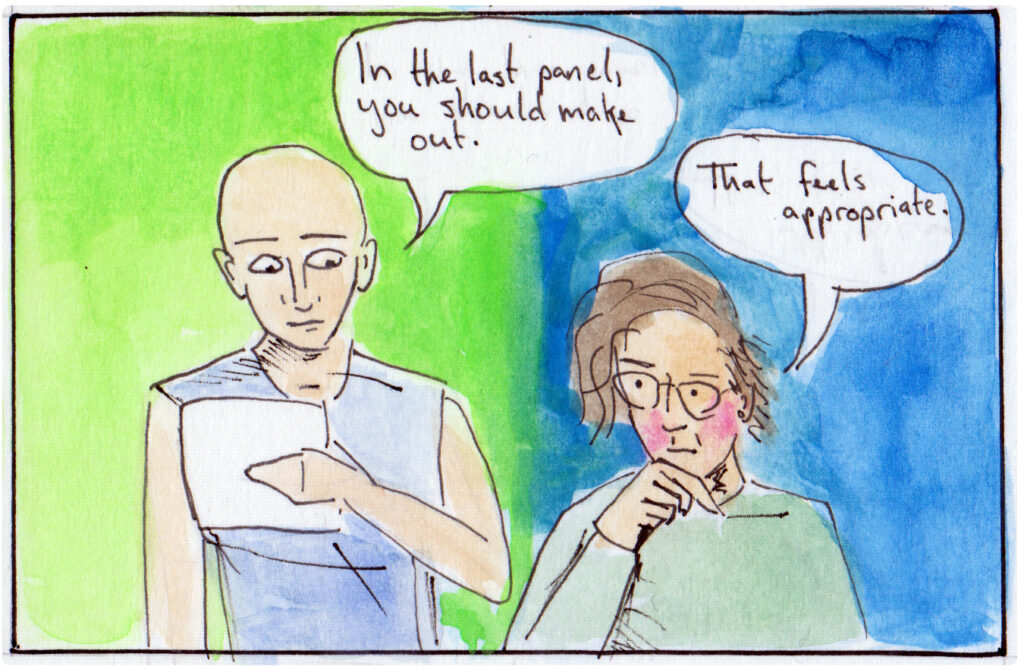
(In case you haven’t read it, Mary Oliver references this poem. Nietzsche dressed as the Overman first debuted here.)
In case you missed it, Dionysus in Wisconsin got shortlisted for the Lambda Literary Award in gay romance. The ceremony isn’t until June, so I get to spend the next few months either being anxious or being fêted, depending on who you ask. The other nominated works (you can check them out here) are also tremendous, which is awesome and intimidating all at once. In a very good article on being nominated for things, John Scalzi refers to all the works nominated together as a peer group. It’s hard to conceptualize myself up next to those other writers as peers, because their books are so good.
Awards are weird. On the one hand, they can draw attention to works that otherwise have been overlooked, create critical conversation, and recognize people who do work very, very hard and often receive very little. On the other hand, as an outsider, they can often seem to reinforce mainstream, middle-class values and recognize works that have already received recognition. Not for nothing, the Pulitzer board declined to award a prize for Gravity’s Rainbow the year it was released, because some of the board believed it was obscene and unreadable. (Which it is, but not in a bad way.)
That is to say, in a certain sense, it doesn’t matter if the Barbie movie gets an academy award (or even a nomination); it’s already proved its point by grossing a billion dollars worldwide. It’s already won.
For every book I’ve read that had justifiably won the award it was nominated for, I can name one that wasn’t very good and made me wonder what the judges had been thinking. And of course, there’s the terrible conundrum of the writer who wins a major award early in their career and then never quite achieves that high again.
Anyway, as of this writing, my biggest feeling right now is just…happiness. As someone who was always kind of a weird kid, who wandered for a long time without much acknowledgement that my writing was what anyone wanted to read (remember this comic? yeah, bleak times), it’s nice to feel like, hey, actually, someone did like it after all. More than one someone.
I just want to take this moment to thank everyone who’s read the book already, or who heard the news and is reading it now. You guys are the best. If you ever get to Madison, let me know. I’ll make cookies.
Gonna file this under BF608 L86 2024 for Philosophy, Psychology, Religion–Psychology–Will. Volition. Choice. Control. (Feel a little bad for psychology, which still shares BF with parapsychology and occult sciences. That feels like a statement at this point.)

